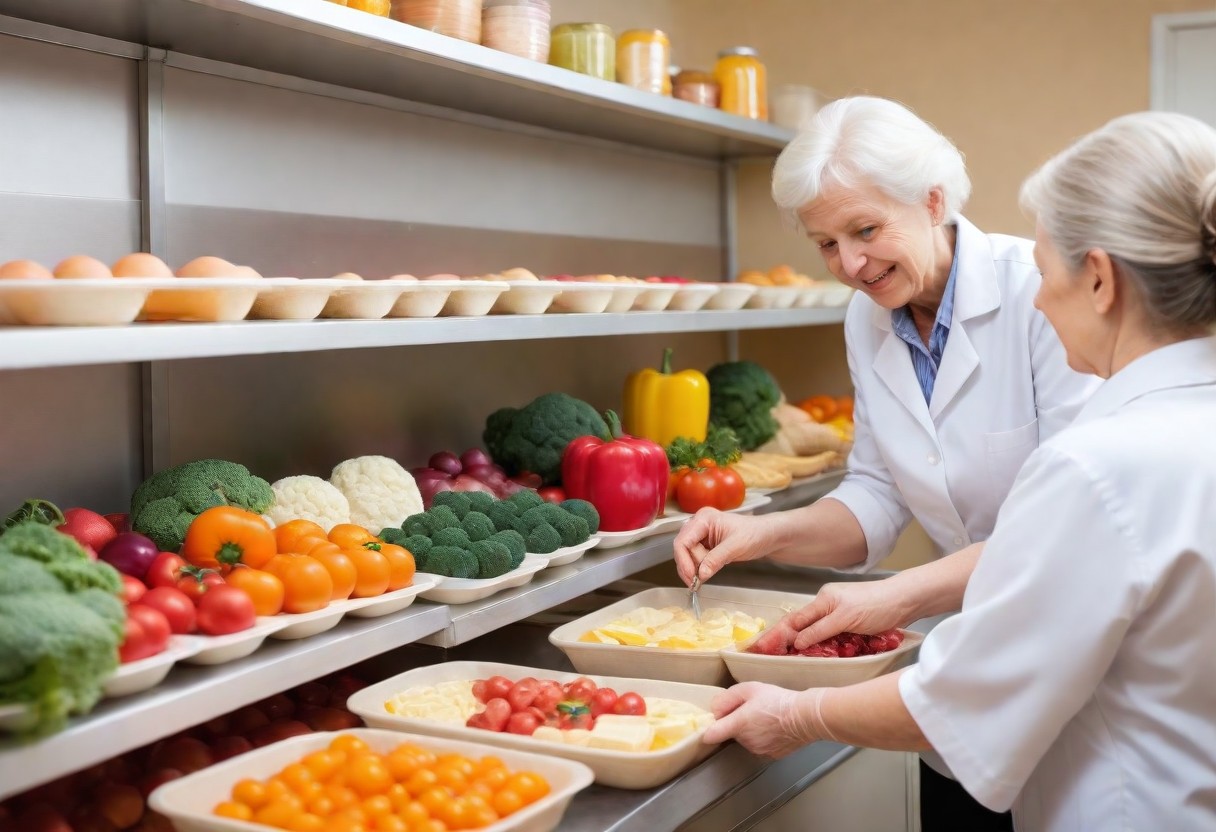Ensuring high-quality and safe food for care home residents is crucial for their health, well-being, and dignity.
There is a strong framework of laws, standards, and inspections to guarantee that food provided in these facilities is nutritious, meets dietary needs, prepared safely, and hygienic.
Legislation Governing Food Safety in Care Homes
The primary law for food safety in the UK is the Food Safety Act 1990. It outlines the duties of those who prepare and serve food. This act is supported by the General Food Law Regulation (EC) 178/2002, which lays down basic food safety principles.
These regulations require care homes to manage their food handling processes carefully to avoid contamination and ensure safety. Key practices include:
- Ensuring all supplied food meets safety standards.
- Proper storage, handling, preparation, and cooking of food.
- Implementing a Hazard Analysis Critical Control Point (HACCP) system to manage potential risks.
- Regulation (EC) No 852/2004 mandates specific hygiene standards that all care homes must follow.
Standards for Food Safety
The Food Standards Agency (FSA) provides guidelines on proper food safety practices under regulations like the Food Safety and Hygiene (England) Regulations 2013. These emphasise hygiene importance, correct handling methods, and using HACCP-based management systems.
The Care Quality Commission (CQC) in England assesses how care homes meet the nutritional and hydration needs of their residents under the Health and Social Care Act 2008 (Regulated Activities) Regulations 2014. While they do not focus solely on food safety, their standards ensure that nutrition and hydration are thoroughly monitored and maintained to high standards.
Inspection and Enforcement
Food safety inspections in care homes are conducted by Environmental Health Officers (EHOs) from local authorities. These unannounced inspections check if care homes comply with food safety laws. The inspection reviews:
- The condition of facilities and equipment.
- Food handling practices.
- Food safety management documentation, including HACCP systems.
- Staff hygiene practices.
After an inspection, a care home receives a food hygiene rating from 0 (urgent improvement necessary) to 5 (very good), as part of the Food Hygiene Rating Scheme (FHRS). This rating informs residents and their families about the home’s food safety levels.
Care homes that do not meet food safety standards may face enforcement actions ranging from advice to fines or even closure in severe cases.
In Scotland, Wales, and Northern Ireland, similar regulatory frameworks exist with the respective food safety authorities.
Continuous Improvement and Training
A key element in upholding high food safety standards in care homes is the commitment to continuous improvement and staff training.
Care homes must stay current with the latest food safety practices and legislation, and ensure their staff receive ongoing training.

